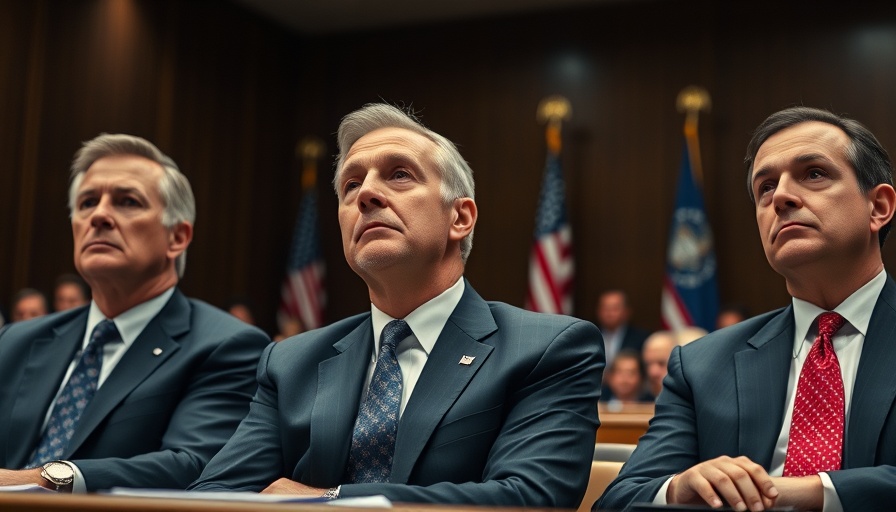
Understanding the Impact of Proposed Budget Cuts on Older Adults
As discussions around federal budgets heat up, the implications for older adults become increasingly significant. President Trump’s FY 2026 budget has sparked considerable concern among aging services advocates due to its proposed cuts to vital programs, particularly Medicaid and nutrition services. The ramifications of these budget changes could be dire for many seniors who rely on these essential services to maintain their health and independence.
What Does the Budget Look Like?
The One Big Beautiful Bill recently signed into law introduces sweeping changes, effectively changing the landscape for nearly 9 million older adults who depend on Medicaid for services that Medicare doesn’t cover—like home care, adult day care, and essential transportation services. With approximately 1.3 million seniors potentially losing their Medicaid coverage by 2034, the cuts could drastically limit their access to necessary healthcare and support services, thrusting families into chaos as they navigate the complexities of care options.
Nutrition Services Under Threat
Alongside healthcare, nutrition programs are also facing steep cuts. Many older adults benefit from community nutrition initiatives that promote healthy eating and assist in weight management, crucial for maintaining overall health. With potential funding reductions for nutritional services, issues like poor diets and malnutrition could become commonplace, affecting both physical and mental well-being. Community-supported healthy eating programs, which offer guidance on self-care and healthy recipes, may be at risk, undermining efforts toward healthier lifestyles among the elderly.
The Broader Implications of Medicaid Cuts
According to advocates, slashing funds for home and community-based services (HCBS) isn’t just a bureaucratic decision; it’s a human one with real-world consequences. As highlighted by experts from The Scan Foundation, most of these programs are not mandated, making them prime targets for cuts. Without HCBS, many older adults may find themselves facing increased costs to receive care or, worse, forced into institutional settings like nursing homes that often come with a far higher price tag for taxpayers.
The Strain on Direct Care Workforces
Another devastating impact of these budget cuts will be on the direct care workforce. The agencies providing crucial home care for seniors are likely to experience funding reductions that impede their ability to recruit and retain staff. The implications for older adults in need of home care are profound. Reduced access to certified caregivers puts vital daily assistance out of reach for many seniors, impacting their quality of life and overall health.
Health, Wellness, and Community Engagement
In light of these budgetary changes, the importance of community engagement and wellness initiatives for older adults becomes critical. Local wellness programs that promote physical activity, stress management, and mental clarity could serve as lifelines. By adopting holistic health approaches that include yoga, meditation, and functional fitness, seniors could counterbalance some negative effects from declining support systems.
Actionable Insights for Seniors and Caregivers
As concerned citizens, it’s crucial for communities to advocate for the protection of these programs. Engaging in conversations with local policymakers can foster awareness. Taking part in wellness workshops not only promotes healthy living but also builds essential community support networks. By focusing on healthy habits, nutritional counseling, and self-care practices, seniors can manage stress, enhance emotional well-being, and maintain their health.
What Now?
The implications of the fiscal policy for older adults extend beyond mere numbers. As families and communities are impacted, the need for a dialogue around these changes cannot be overstated. Health fanatics and advocates alike must remain informed and proactive in ensuring that the rights and needs of older adults are prominent in future discussions. Explore community resources, wellness tips, and healthy lifestyle programs to navigate challenges created by budget cuts. Let’s work together to preserve the services that enable our loved ones to thrive.
 Add Row
Add Row  Add
Add 




Write A Comment